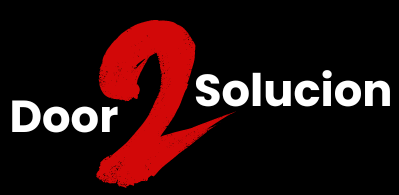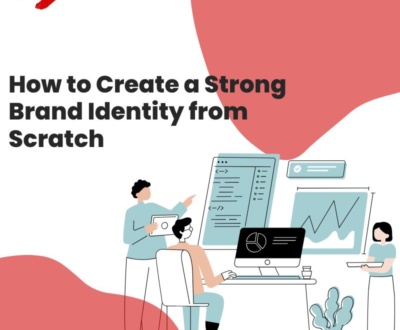Social Media Marketing: Which Platform is Right for Your Business?
- September 23, 2024
- Uncategorized
In today’s digital-first world, having a robust social media presence is crucial for any business looking to thrive. However, not all platforms are created equal, and what works for one brand might not be the best fit for another. Whether you’re a startup or an established enterprise, selecting the right platform is critical to maximizing your return on investment (ROI) and ensuring your social media marketing strategy aligns with your business goals. So, how do you choose?
Here’s a guide to help you decide which social media platform is right for your business.
Facebook: Broad Appeal and Versatile Ads
With nearly 3 billion monthly active users, Facebook remains the most popular social media marketing platform globally. Its vast audience base makes it a versatile platform for businesses of all sizes.
- Best for: B2C and B2B businesses, small businesses, e-commerce, local services.
- Why choose Facebook?: It offers advanced targeting options for advertising, various post formats (text, images, video, stories, live), and an integrated marketplace for product sales.
- Challenges: Organic reach on Facebook has decreased over time, meaning businesses may need to invest in paid advertising to maximize visibility.
Instagram: Visual Storytelling and Influencer Marketing
Instagram is the go-to platform for brands focused on visual storytelling and branding. Its features like Stories, Reels, and IGTV make it ideal for businesses looking to engage creatively with their audience.
- Best for: Fashion, beauty, travel, fitness, and lifestyle brands.
- Why choose Instagram?: High engagement rates, influencer marketing potential, and visual-centric content that appeals to a younger audience. Instagram is also excellent for product-based businesses.
- Challenges: Highly competitive, and while it’s a great platform for organic engagement, the constant algorithm updates can impact visibility.
LinkedIn: Professional Networking for B2B
LinkedIn is the leading platform for professionals and B2B marketers. It’s where decision-makers hang out, making it ideal for companies in the business, tech, education, and HR spaces.
- Best for: B2B companies, recruiters, consultants, and industries like SaaS, legal, and finance.
- Why choose LinkedIn?: It’s the best platform for thought leadership, networking, and generating high-quality leads through professional content. LinkedIn Ads are also effective for targeting specific job titles or industries.
- Challenges: LinkedIn ads tend to be more expensive than on other platforms, and growing a following organically can take time.
Twitter: Real-Time Engagement and Brand Voice
Twitter is the platform for real-time engagement and quick, conversational interactions. If your business thrives on news, trends, or customer service, Twitter is a great option.
- Best for: News organizations, tech companies, customer service-focused businesses, and thought leaders.
- Why choose Twitter?: It allows businesses to participate in trending conversations, establish brand voice, and provide instant customer support.
- Challenges: Twitter’s fast-paced nature means that posts have a shorter lifespan, requiring more frequent updates.
TikTok: Viral Content and Gen Z
TikTok has taken the social media world by storm with its short-form, viral videos. If your brand can create engaging, fun, and creative content, TikTok offers a huge opportunity, especially for younger demographics.
- Best for: Brands targeting Gen Z and Millennials, entertainment, fashion, and lifestyle industries.
- Why choose TikTok?: The potential for viral content, influencer collaborations, and high engagement with a young, active audience.
- Challenges: TikTok requires constant creativity, and not every business type may have the resources to produce the kind of content that performs well on this platform. TikTok is banned in India and its place is taken over by youtube shorts and instagram reels.
Pinterest: Inspiration and Niche Marketing
Pinterest is a visual search engine rather than a social networking site, but it’s excellent for driving traffic and sales for businesses that rely on high-quality visuals and lifestyle products.
- Best for: Home decor, DIY, fashion, beauty, weddings, food, and travel.
- Why choose Pinterest?: Users come to Pinterest to find inspiration and plan purchases, making it a fantastic platform for e-commerce and visual product promotion.
- Challenges: Requires consistent visual content creation, and growth on Pinterest can be slower compared to other platforms.
YouTube: Video Content and SEO Powerhouse
YouTube is the second-largest search engine in the world after Google, making it an invaluable platform for businesses that want to create long-form video content, tutorials, and product reviews.
- Best for: Education, tech, entertainment, and e-commerce businesses.
- Why choose YouTube?: Videos have long-term value, and the platform is excellent for building brand awareness and improving SEO. YouTube ads can also target specific demographics and interests.
- Challenges: Producing high-quality videos can be resource-intensive, and building an engaged audience takes time.
Snapchat: Engaging with Younger Audiences
Snapchat offers a unique way to engage with younger audiences through short-lived, interactive content like Snaps and Stories.
- Best for: Fashion, beauty, entertainment, and lifestyle brands targeting Gen Z and younger Millennials.
- Why choose Snapchat?: It’s great for time-sensitive promotions and behind-the-scenes content. The platform’s AR filters and lenses also provide fun, interactive marketing opportunities.
- Challenges: Snapchat’s ephemeral nature means your content disappears quickly, making it less suitable for long-term content strategies.
Final Thoughts
Choosing the right social media marketing platform for your business depends on your goals, target audience, and the type of content you can consistently produce. For B2B, LinkedIn and Twitter might be your go-to platforms, while Instagram and TikTok are better suited for lifestyle and product-based businesses. A well-rounded strategy may involve using multiple platforms, but always tailor your approach to each platform’s strengths.
When in doubt, start by identifying where your target audience is most active and experiment with different types of content to see what resonates best. Remember, social media marketing isn’t a one-size-fits-all solution; it’s about finding the perfect mix for your unique business. By making informed decisions about which social media platforms to invest your time and resources into, you’ll be better positioned to build a strong, engaged online community and achieve long-term success.
About us and this blog
We are a digital marketing company with a focus on helping our customers achieve great results across several key areas.
Request a free quote
We offer professional SEO services that help websites increase their organic search score drastically in order to compete for the highest rankings even when it comes to highly competitive keywords.
Subscribe to our newsletter!
More from our blog
See all postsRecent Posts
- SEO: Best Practices for Startups September 23, 2024
- The Role of Data Analytics in Modern Marketing September 23, 2024
- Social Media Marketing: Which Platform is Right for Your Business? September 23, 2024


![11[1]](https://door2solucion.com/wp-content/uploads/111-400x330.png)
![10[1]](https://door2solucion.com/wp-content/uploads/101-1-400x330.png)
![8[1] common marketing mistakes startups should avoid](https://door2solucion.com/wp-content/uploads/81-400x330.png)
![7[1] how ro create effective marketing campaign](https://door2solucion.com/wp-content/uploads/71-400x330.png)
![6[1]](https://door2solucion.com/wp-content/uploads/61-400x330.png)
![5[1]](https://door2solucion.com/wp-content/uploads/51-400x330.png)
![4[1]](https://door2solucion.com/wp-content/uploads/41-400x330.png)
